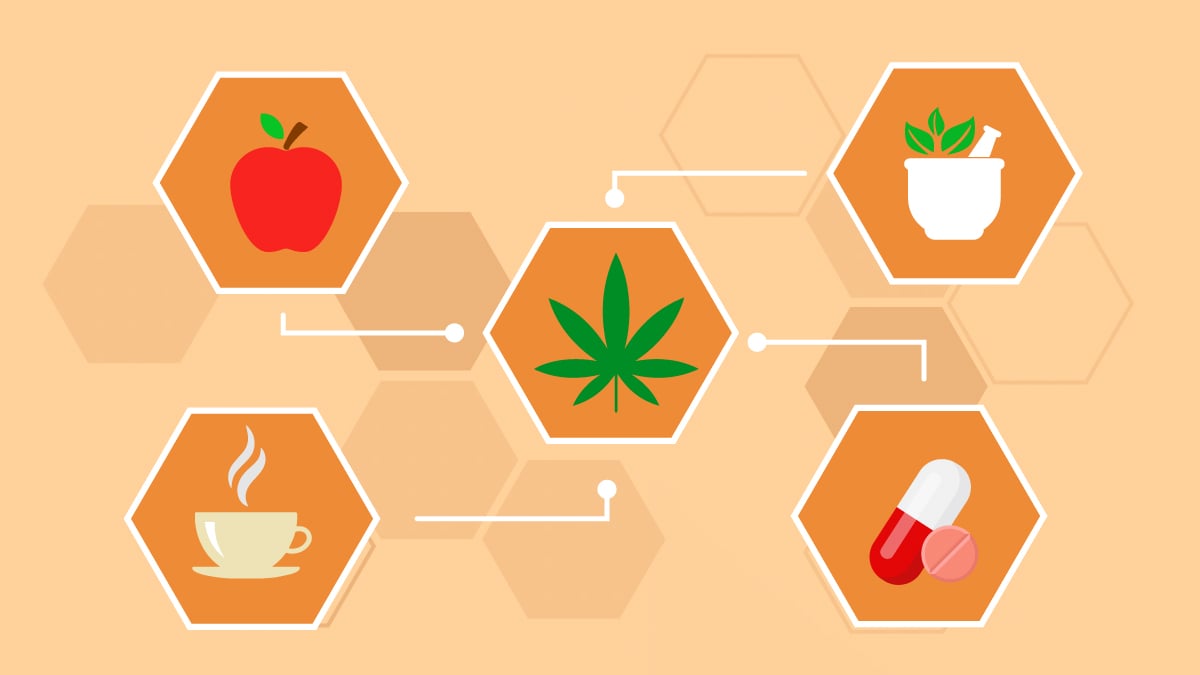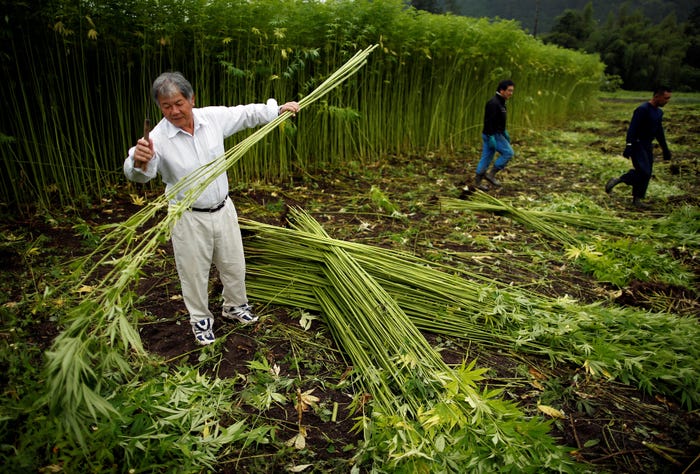
CBD oil can be used to reduce anxiety. CBD oil can help with anxiety by having a calming effect on the brain and body. It can also provide comfort. It can cause side effects. Talk to a doctor if there are any concerns.
CBD can cause dizziness and numbness in some people. It is usually temporary and disappears in a matter of minutes. Some people describe the sensation as feeling like you are standing too fast. After the dizziness goes away, it's possible to feel calmer and more relaxed.
All lipid layers of the body have cannabinoid receptors. The TRPV1 receptor is one of these receptors. It's not clear how CBD activates this receptor. Scientists believe that CBD activates this receptor by activating the autonomic nervous systems or lowering blood pressure.

Some people experience a tingling sensation or numbness to their lips and tongue. This can occur with any cannabis product, but it is more common with CBD. A chemical reaction in your saliva can cause a feeling of numbness in your mouth. You might want to eat something or drink a cup of tea to alleviate this side effect.
A CBD vape pen might be a good option if you are experiencing a tingling sensation or numbing sensation. There are many CBD topicals on the market that provide immediate relief. These products contain CBD and other cannabinoid compounds that enter your bloodstream. They can be activated in as little as 10-20 minutes.
People who use CBD for anxiety tend to report feelings of comfort and clarity. It is common to feel relaxed and calm after spending some time outdoors or meditating. It is easier to solve problems if your mind and body are clear.
Some users also experience a floating, euphoric feeling. The effects can be similar to those experienced by first-time users. However, it's important to keep in mind that there is a high risk for liver damage when you take a large amount of CBD. CBD overdose can also cause anxiety and irritability.

While CBD has been reported to have many positive side effects, some people don't see any. In certain cases, CBD might cause you to feel an inverted U shape effect. This could mean that you don't feel any relief. Other times, you might have to wait longer for the effects to begin.
It has been proven to relieve anxiety symptoms and is effective in treating a variety of anxiety disorders. Research has shown CBD can also promote sleep. CBD can be used in moderate amounts to treat a variety of stress-related disorders. Using CBD for pain may also be beneficial.
You might not notice any changes right away but your body will continue to respond to CBD over time. Combining CBD with regular exercise and meditation can help you to feel more relaxed and balanced.
FAQ
Is there evidence that CBD reduces anxiety?
CBD oil is effective for treating anxiety because it interacts with certain receptors in the brain called CB1 and CB2. The endocannabinoid process regulates stress responses and mood.
CB1 receptors are activated by chemicals released when we feel anxious. This receptor activates and sends signals to amygdala which is responsible for emotional processing.
When the CB1 receptor blockage occurs, the amygdala is unable to receive the signal necessary for processing emotions. People who use CBD have fewer negative emotions.
2017 study found that CBD helps reduce anxiety in social phobia patients. Another study revealed that CBD helped reduce symptoms of PTSD.
A 2018 review concluded CBD has anxiolytic potential and could be used to treat generalized anxiety disorder.
Another study concluded that CBD may help with panic attacks.
However, several studies have shown that CBD actually increases anxiety levels in mice.
The researchers believe that this discrepancy between human data and animal results may be due to differences in how humans and animals respond to CBD.
CBD has not been shown to be safe long-term. Most experts agree that CBD can be safely used when it is directed.
How big is the global CBD market?
Euromonitor International reported that the global CBD market was valued in 2015 at $US3.5 billion. This represents a 10% increase from 2014.
This figure is expected to grow at an average rate of 12% by 2020.
CBD products are expected to account for around half of all hemp-derived products sold globally by 2020.
This includes CBD oils, as well other CBD products, including food, beverages cosmetics, pet care, and CBD oils.
Which states consume the most CBD?
California, Colorado, Oregon are the three most populous states. These states have large populations, high incomes, and low unemployment rates. They also have higher levels of hemp farming than other states.
California is the leader because its economy is heavily dependent on agriculture. It produces the majority of the nation’s fruits and veggies. This is because cannabis is from the same source as hemp.
Colorado and Oregon follow close behind because they both produce marijuana for medical purposes. California is the only state that allows recreational marijuana use, but these two states are not.
Other highly ranked states include Washington and New York, Florida, Illinois. Pennsylvania. Mississippi.
Is the CBD industry on the rise?
Yes! As legalization spreads throughout North America, this growth is expected continue. Canada, which legalized recreational cannabis, has passed several medical marijuana laws.
As more states legalize medicinal marijuana, this trend will likely continue for at minimum a decade.
The legalization of marijuana also makes sense from an economic perspective. As well as providing a lucrative alternative market for farmers, there are many other benefits to legalizing pot.
It could reduce crime rates, by decreasing illegal drug availability. It could also bring in tax revenue to governments.
People may choose to drink less alcohol as legal marijuana becomes more popular. This would lead to fewer hangovers as well as lower health care costs.
People with chronic pain may also find marijuana to improve their quality life. Many believe that THC (the active ingredient in marijuana) helps to relieve the symptoms of nausea and muscle spasms associated with chemotherapy.
Finally, marijuana might become a valuable tool for treating mental illnesses such as depression and anxiety. According to some studies, marijuana can be used to treat schizophrenia.
The CBD industry is on the rise, and there are many obstacles in its path.
Statistics
- The inhibition of FAAH is predicted to lead to an increase in brain and plasma concentrations of AEA, which acts as a partial agonist at CB1R and CB2R, thereby increasing endocannabinoid tone [92, 110]. (ncbi.nlm.nih.gov)
- HR −16 mmHg; 95% CI −26, −6; I2 = 92%) (ncbi.nlm.nih.gov)
- OralWhere HED is the human equivalent dose, and Km is a correction factor estimated by dividing the average body mass (BM) of the species (60, 0.020, and 0.150 kg for 11 humans, mice, and rats, respectively) and by its surface area (see: Nair et al. (ncbi.nlm.nih.gov)
- CBD seems unlikely to directly influence sleep in healthy humans [115] (and maybe “sleep-promoting” in those with certain comorbid conditions) (ncbi.nlm.nih.gov)
- A recent study [161] also found that in vitro CBD treatment (i.e., ≤ 2 h exposure to 10 μM) induced ~40% vasorelaxation in isolated (pre-constricted) (ncbi.nlm.nih.gov)
External Links
How To
What are the major issues facing the CBD industry in general?
The market for CBD products continues to grow at an amazing rate. However, this market is still full of challenges for businesses that want to expand. These include a lack of consumer awareness, high cost of entry, limited access to capital, and regulatory uncertainty.
Many people are not aware of what CBD is, or how it functions. This makes it difficult for consumers to make informed decisions on whether or not they want CBD products.
As a result, most CBD companies rely heavily on word-of-mouth marketing. This is costly because they have to pay for advertising and hire staff to promote their brand.
High production costs are another problem facing new entrants in the CBD industry. CBD products can be very costly because of the cost of the raw materials. To make CBD oil, hemp must be grown in certain climates and soil types.
It takes approximately $1,000 per acre to grow enough hemp to process into CBD oil. Many small farmers can't afford to begin.
A lack of capital access is another problem that CBD market newcomers face. Due to the stigma surrounding the industry, banks discourage many people who wish to start businesses.
Last but not least, there is regulatory uncertainty regarding the sale and distribution of CBD products. There are currently no guidelines on how CBD products should marketed.
Although states have passed laws restricting CBD products sales, these policies are not yet national.
So far, only two states - Maine and Nevada - have legalized recreational marijuana.
Massachusetts and Michigan have considered similar measures.
These changes could mean that CBD manufacturers will be more competitive.
As a result of these factors, many entrepreneurs choose to work from home rather than start a physical business.